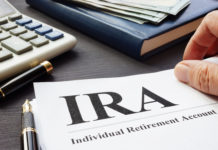Experts often caution retirees against overlooking the cost of health care when planning for their golden years. A recent study suggests that concern is about to become even greater.
According to the 2015 Retirement Health Care Cost Data Report, a healthy couple retiring at age 65 this year can expect to spend over $266,000 on health care during retirement. The report was compiled by HealthView Services, a provider of Medicare, Social Security and long-term care planning tools.
The anticipated spending total for such a couple accounts for the following:
- Medicare Part B (covering doctors’ visits and outpatient services);
- Part D prescription drug plans;
- Supplemental Medigap insurance
But the worst news is that these costs continue to grow at an alarming pace—far faster than annual adjustments to Social Security benefits. The $266,000 figure is 6.5% higher than last year’s number, while Social Security checks grew by only 1.7% in 2015. It doesn’t take a math teacher to realize that if the trend continues, retirees will be spending a disproportionate amount of their benefits to pay for health care.
These numbers don’t account for ancillary costs such as dental, vision and hearing treatment. When including those costs, the anticipated spending amount moves closer to $400,000. It’s anticipated that these figures will grow another 15%-20% within the next 10 years.
In terms of Social Security benefits, HealthView Services projects that health care costs will account for 67% of lifetime income from the program for people of full retirement age in 2015. Looking forward to 2025, that number grows to an astounding 90%.
“The report demonstrates that health care costs will account for a very significant and growing portion of retirees’ budgets,” said Ron Mastrogiovanni, founder and chief executive of HealthView Services.
Mastrogiovanni suggested that people can prepare for these intimidating costs by investing in products including, but not limited to, Health Saving Accounts (HSA), Roth IRAs and non-qualified annuities—but above all, by sitting down with a qualified retirement phase expert to plan a comprehensive strategy for retirement.













